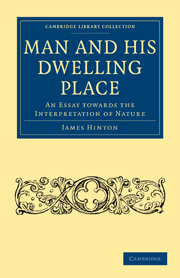Book contents
Summary
Nor is it at all incredible that a book which has been so long in the possession of mankind should contain many truths as yet undiscovered. For all the same phenomena, and the same faculty of observation, from which such great discoveries in natural knowledge have been made in the present and the last age, were equally in possession of mankind several thousand years before.
—Butler: Analogy of Religion.MAN is in no other sense prejudiced than as he clings to that which he cannot feel himself justified in resigning. He is not unwilling to advance, but he is fearful. His very timidity, and consciousness of his liability to err, drive him to assume positions which only the most perfect selfconfidence could justify; for there is no rashness like that of fear. We are so bound to that to which we have been accustomed, because to us the unknown is full of vague terrors. To exchange that which has been felt as certainty, for that which seems uncertain, because untried, is painful to us. We fear disaster wherever we cannot see. The instinct which makes the stoutest heart shrink from darkness, and peoples it with phantoms, is equally strong in the intellectual world. On the accustomed principles certain results can be secured, and we wish to rest. We are content not to be wiser if we can but feel sure. But God will not let us rest. He has other work for us to do. Above all He will cure us of our mistrust. For the secret of this misgiving is that man has not faith in God.
- Type
- Chapter
- Information
- Man and his Dwelling PlaceAn Essay towards the Interpretation of Nature, pp. 201 - 208Publisher: Cambridge University PressPrint publication year: 2009First published in: 1859

